There’s no denying that Greeks are everywhere and have had a significant engagement in Africa. Their influence is evident from the first colonies in Egypt, Libya and even Tunisia
From the first colonies in Egypt, Libya and one in Tunisia, Greeks, the language and even Greek Orthodoxy has been evident in parts of Africa for thousands of years. There can be no denying it, Greeks are everywhere and have had a significant engagement with Africa.
Libya
Timing can be everything. I was just about to book my trip to see my adventurous Greek friend Will, a guy who had lived in four countries, including his latest residence in Libya. I was in for a rude surprise.
As a Project Manager, Will was given the opportunity to work near Tripoli. Just as I found my ticket, war broke out (2011). Will was lucky to get out. Dramatically abandoning his car as it broke down outside the airport.
He just made one of the last evacuations to Germany.
I had always wanted to visit what was known as Cyrenaica in Libya, home of ancient Greek colonies that later became a Greek Byzantine stronghold in the 500s AD. This area on the northern tip of Libya has had an unbroken Greek link since at least 630 BC.
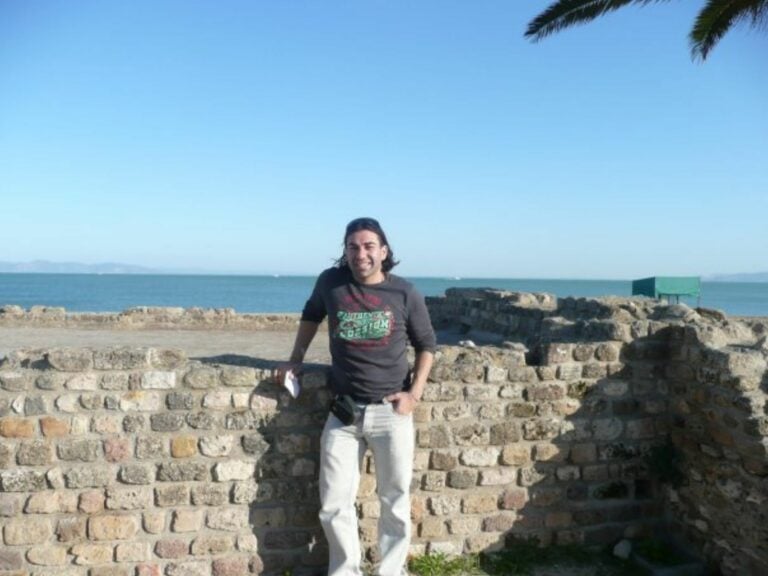
Byzantine Libya was taken by Arab troops in 642 AD. The language remained in use for centuries thereafter as Hellenes and some churches continued to speak Greek.
Around the 18th- to- 19th centuries, north Africa – including Libya – had a large influx of Greek people. They took advantage of the fact that Ottoman Turks, who controlled the area, nominally, did not undertake trade. The Greek community would number in the thousands as a Greek church was built and became the focal point for Hellenic culture.
If only I had taken up the offer from Will to visit when he first moved to Libya, I could enjoyed my coffee beside some of the best-preserved ancient Greek archaeological sites in the world and met the last remaining Greek speakers. Alas, it was not to be. From the accounts I have received, there remains a small Greek presence in Benghazi, people who have been there for generations.
READ MORE: Cyrenaica, the Greek region of Libya
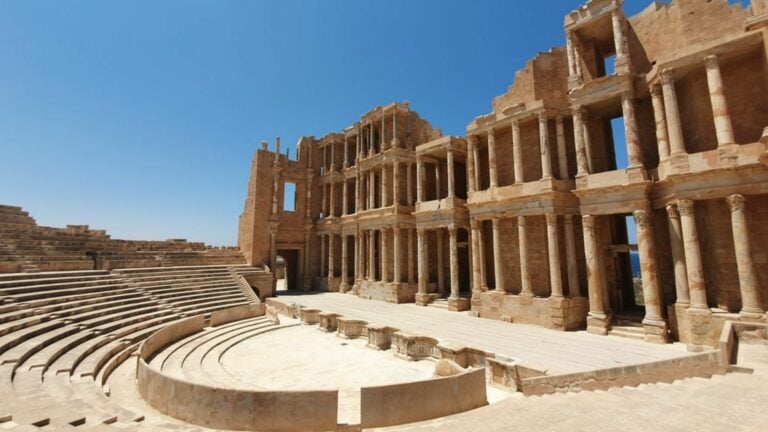
Ceuta
I was in the delightful Morocco where it was explained to me by a young man that the Byzantine Greek military once had a presence in his country. The lad told me a lot about history that most 20-year olds wouldn’t know. I struggle to recall his name, though I can visualise him in the market. He was there every day, selling, hustling, negotiating, laughing. He told me about the Spanish enclave of Ceuta. Spain has another enclave nearby and each with a population of around 90,000. They were once part of Morocco who still claim these territories as their own, almost 400 years since they were lost to Spain.
Ceuta was once known as Septum and when the great Byzantine general Belisarius conquered the Mediterranean in 533 AD, he took this outpost which is opposite Gibraltar. It is known as Hercules’ Pillar in Africa. Septum was the last territory in Africa to fall to the Arab military, holding out until 711. Julian, the final Byzantine Governor and a supporter of the Arab movement, surrendered Septum to spare it potential ruin from the advancing military. Considering how far west the enclave was from heartland of the Byzantine Empire, it is hard to imagine that Greek was the main language. However, there were hundreds of Greek speakers and several churches/basilicas at the time it was captured.
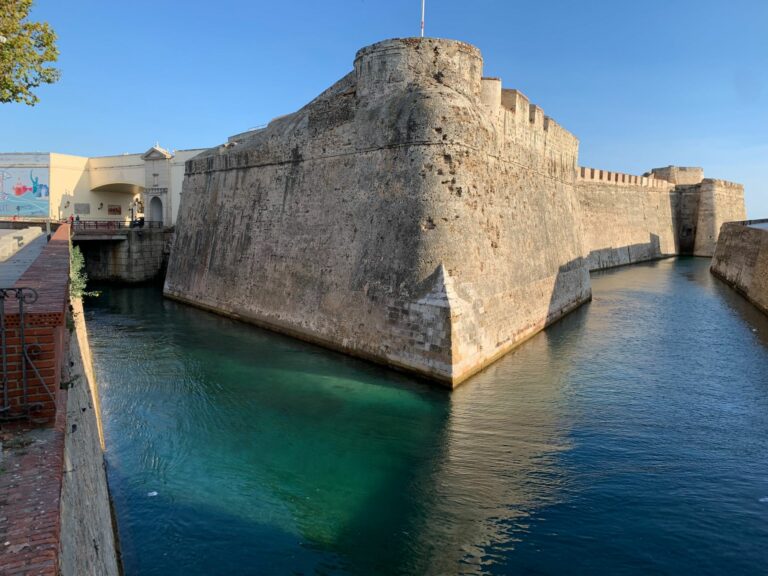
South Africa
There are approximately 70,000 people of Greek heritage living in South Africa.
The first Greek migrants arrived in 1850, looking for a sense of adventure and purpose as most of the Greek East was still under Ottoman suzerainty. These early settlers generally tended to work in the mines searching for gold and diamonds.
One of the most interesting South African Hellenes was a person from last century, George Bizos, a man I read about in a book entitled, ‘The Long Walk to Freedom’. A humanitarian lawyer and like virtually the entire Greek population was staunchly anti-apartheid.
Another high profile Greek is famous soccer pioneer Ivan Gazidis who went on to become the Chief Executive of Arsenal FC.
My friend Elena Spiliopoulou was born in 1985 and currently lives in a small town managing her restaurant. Having had a long stint living in Athens, which ended in 2011, her heart is shared between the two countries. With the realisation the Greek economy would not improve, she returned. Elena gave me a great insight into what it was like growing up towards the end of the Apartheid and the struggle to change to a pluralist democracy. Like most people there, she talks fondly of Madiba and the inspiration he was and remains. There were periods when Greek people struggled for overall acceptance, though they did not go through the same tribulations and problems confronted by other groups. She also reminded me that Ghandi was a famous resident of this picturesque part of the world, a ‘Uitlander (foreigner)’ who fought for equality.
Her pappou had a famous Hellenic bakery in the 1960s in Hilbrow, Johannesburg. This set the family up as emerging businesspeople. It is a reminder that Greece has had economic problems over the decades, which constantly leads many of its people to migrate elsewhere. At least in SA they are surrounded by stunning landscape and coastline, similar to where they came from.
Stelana Kliris, a very talented film maker whose credits including “Committed”, was born in South Africa in 1981, and like my friend Will, has lived in four countries. She told me that South Africa had a large Greek population. “It is smaller now as many people have returned to Europe over the years, but while I was there, we had Hellenic communities all over the country; there were about 10 Hellenic Youth Organisations which were strong,” she said.
Stelana explained that school was in English, and it was compulsory to learn a second local language as well.
There are a dozen official languages and Greek was taught in the afternoons at Greek School.
In Johannesburg, there is also a Greek private school known as Saheti which functions in English but offers Greek as a subject. She also told me with pride of “how far our parents came. They literally arrived from Cyprus with nothing but a suitcase, not even knowing the language. They worked very hard and stuck together as a community, ensuring that their children could have a better future, and they did.”
A lot of Greeks who migrated to Australia, had to sail passed South Africa. This country is the only country my mum has visited that is not Greece, Australia or Germany. She remembers the kindness of people irrespective of heritage as the she and her fellow migrant travellers were stuck outside the port for days in 1967.
Kenya
I met Dimitris in a coffee shop in London. Our meeting was meant to be, coming about after my then girlfriend dared me to speak to a group of guys who were conversing in Greek. I was more focussed on the beautiful company at my table. However, to prove a point, I leant over and soon made my acquaintance. This group of Greek boys would eventually become my Greek coffee partners.
Dimitris was born in Kenya, a country with a tropical coastline and climate. You can understand why many Greek speakers embarked on an adventure here. As far back as Fourth Century BC, Greek ships had made their way to Kenya, but it wasn’t until the last 120 years that there has been a real presence for commercial gain.
In late 2013, the Kenya National Chamber of Commerce and Industry and East African Chamber of Commerce chairman James Mureu told the media that four Greek companies will invest in Kenya. A positive sign for potential ways to improve the Greek economy as it continues to struggle with EU debt.
Here is another incredible fact for you to digest. The Greek Orthodox Church has existed in Kenya since the start of the 20th Century. There are well over 200,000 members and growing rapidly amongst the local population. The Church is well respected and performs many wonderful projects in Kenya.
In 1999, the Greek Embassy had protected Kurdish PKK Leader Abdullah Ocalan who had arrived on a Cypriot passport. Turkish Commandos, with the possible assistance of some government officials and Israel, captured Ocalan as he was being moved in Nairobi. This disgraceful incident created a diplomatic row and led to the resignation of several ministers in Kenya and Greece.
READ MORE: Black Athena and the Incredible Whiteness of Being
Egypt
Since antiquity, the proximity of Egypt to Greece ensured a continuous presence of commercial traders making the Greek presence in Egypt the strongest outside of Libya. Archaeological evidence suggests that the Greek presence in the region extends as far back as Minoan times.
Herodotus gave us an early insight into the wealth and history of Egypt when he wrote about his adventure to the country.
Prior to the arrival of the all-conquering Alexander the Great, there existed a city known as Naucratis, which was built for the Greek merchants and supporters of the Egyptian rulers and was the first permanent Greek city in Egypt.
The small settlement was likely established around 625BC but officially declared to be a Greek city circa 570BC. It is located not too far inland from where Alexandria was built on the Nile Delta, arguably the most important Greek city outside of Constantinople and Greece.
The Greek presence has been unbroken here for almost 2400 years. My visit to Alexandria and Egypt presented to me a snapshot of the history of Hellenes in Egypt, which is phenomenal. Two of the most unique and fascinating cultures meeting; the results are impressive. This includes some of the architecture of Alexandria built by Greek Egyptians and the style and substance of Cleopatra, perhaps the most famous woman in the history of the world after the Virgin Mary.
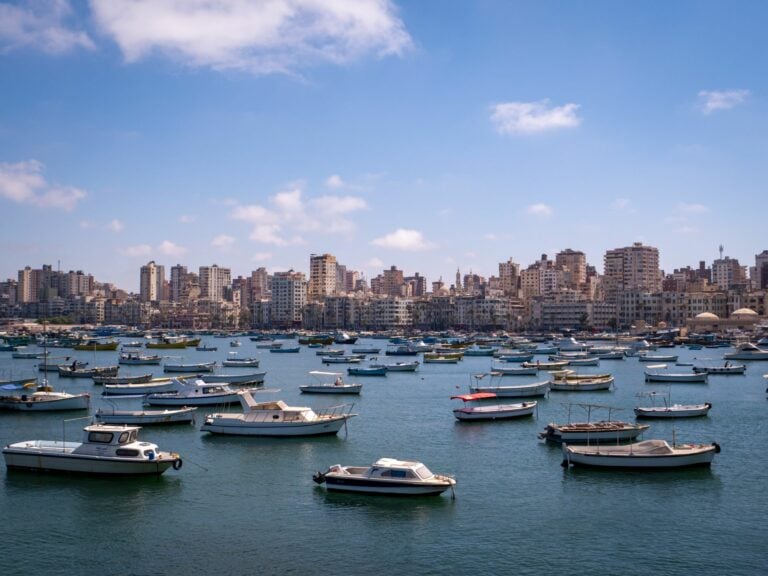
The people of Alexandria are comfortable with recognising the Hellenic past of this city. In the 1950s and 1960s the once-vibrant Greek community of Alexandria was emptied out – in many respects driven out, due to the nationalism of Egypt under President Gamal Abdel Nasser.
Over 250,000 Greeks said farewell to Alexandria during that period.
When I was recently in Alexandria, I was able to meet members of the remaining Greek community – those who chose to stay – who number more than 4,000 people of Greek origin in Alexandria, and perhaps 10,000 in Egypt altogether.
READ MORE: Cleopatra’s Golden Rule – or, she who has the gold, makes the rules

As for Cleopatra, she was the last Hellenic queen of Egypt, from the Ptolemaic Kingdom and was the first to speak a language other than Greek because at that time, Egyptian royalty spoke only Greek. However, they also considered themselves successors to the pharaohs.
Moreover, if Greek people living in Egypt were subject only to Hellenic law.
The Ptolemaic Kingdom ended in 30BC when Cleopatra, having chosen to side with Marc Antony, was defeated by Rome.
Greek language remained in civic and bureaucratic circles under Roman hegemony.
When the Byzantine Greek forces reconquered Egypt in 534AD under Belisarius, they inherited a country with a strong Greek upper class and institutions. The Greek Orthodox Church in particular had a notable presence in the area, and by 642 AD, the Byzantine Empire, which had control of most of Egypt, was defeated by the invading Arab forces.
Around 1517 through to 1798, Alexandria was nominally under the Ottoman Empire. Considering that Muslim people were traditionally reluctant to undertake trade, especially during the Ottoman reign, there is enough evidence to suggest that Greek people remained in the city from the end of Byzantine times to conduct business.
The Greek Orthodox Church of Alexandria has remained an ever presence. I met with a number of priests on my visit to the Holy Patriarchal Monastery of St Savvas the Sanctified, and was given a tour of a most fascinating museum of church relics.
A Greek church has stood on these grounds since 310AD, late in the Roman period.
In 2010, Patriarch Theodoros II inaugurated the new museum in memory of his predecessor, Nicholas VI. The museum, located underground, serves as repository of Church treasures including icons and vestments.
I also met a range of fascinating local Hellenes including the helpful and passionate George Eleftheriou, a businessman who operates Eleftheriou Associates Consultants. His first comment to me came from the heart. He said, “Billy, I love this city, we are in the best place in the world. I am just as happy that I am a Greek who lives here.”
The Averoff School and the Greek Community Office are set on acres of land in the city, still functioning as one of the most prestigious places to receive an education in the Greek world. The school currently implements the curriculum from Athens. The office of the Greek community is in the same building as the school that it oversees. You will also find the Greek Community Club and football pitch.
And finally let’s not forget another Alexandrian treasure – poet Constantine P. Cavafy, one of the greatest Hellenic intellectuals admired throughout the world, particularly renowned for writing the poem, “Ithaca”.
His house has been turned in to a museum, and is a place where you can still feel the magic and presence of this great Greek.
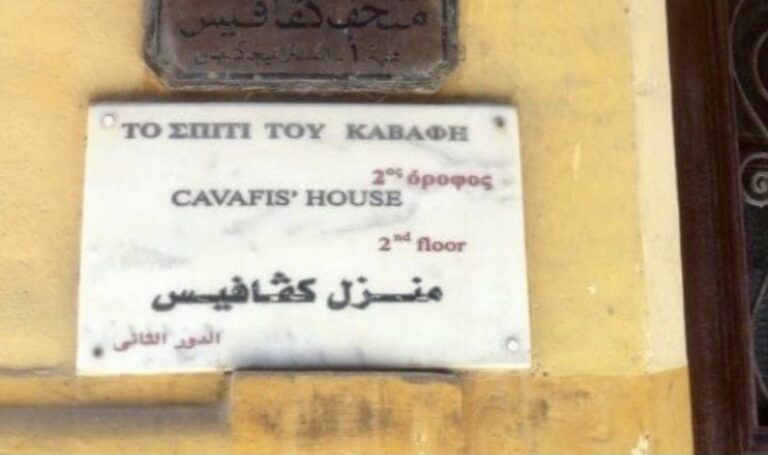
Tunisia
The only Hellenic city in antiquity that was established in Tunisia was a port called Neapolis (Nabuel). Established by the Hellenes of Cyrenaica in the 5th Century BC, it could have been far different had Agathocles of Syracuse (Sicily) defeated the Carthaginians during a lengthy war between 311 – 306 BCE. Another settlement with a connection to the Hellenes is the town of Metline, founded in the 1500s by Ottoman soldiers from the beautiful island of Lesvos. Admiral Hayreddin Barbarossa from the same island was prominent in Algeria and Tunisia during this era.
One of the most inspirational people I ever met was Archbishop of Carthage and all North Africa, His Eminence Alexios Leontaritis, who in 2010, served as the head of the Greek Church of Tunisia, who is responsible for each Greek Church in Tunisia, Morocco, Algeria and Mauritania – approximately 10 in total. His title is important, dating back to the Byzantine era.
The congregation in the capital of Tunis is a modern community, currently 60-people strong, established in 1847.
The passion of the small group made it feel as though there were hundreds of people worshipping and praying when I went to the Church.
Interestingly, the Greeks in Byzantine times called themselves Romans hence it’s ironic that the Greek ecclesia is located at Rue de Rome (just a few blocks from Greek Street).
In a land where 98 per cent of the population adheres to Islam, the small Greek Community have been ‘resurrecting’ the Hellenic spirit of yesteryear.
In the 19th Century, they numbered an impressive 8,000 people.
READ MORE: Restoration: Tunisia with a touch of Hellenism
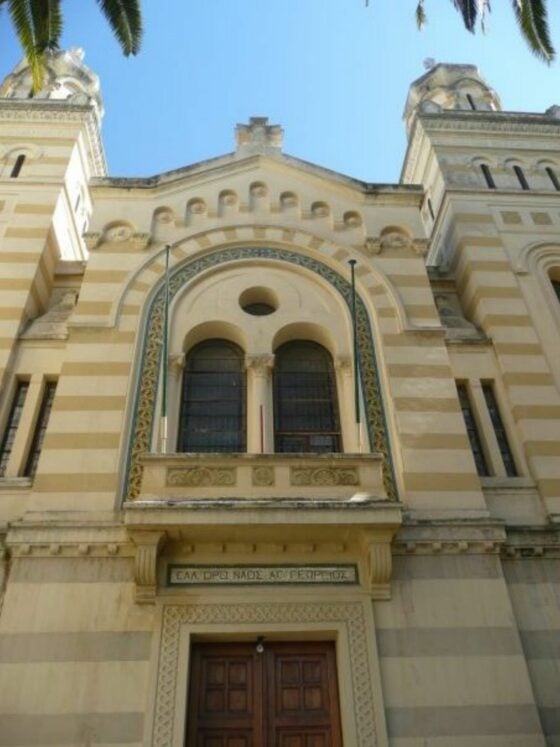
Zimbabwe
Having a coffee with Gianna Papachristou in Athens in 2013 when she returned from a year-long business trip to Zimbabwe, I was stunned that this former elite gymnast could have had a stint there. With the media reports of upheaval and plenty of uncertainty, I asked her why she would take the risk.
For Gianna, it was a sense of adventure and opportunity at a time when Greece was struggling economically. She knew other Greek people there and this gave her the confidence and security to make the journey. It reinforced the notion that there are many Greek speakers who are willing to make an effort to see a new culture and invest in markets that have potential.
There are approximately 2,500 Greeks residing in the country, down from the peak of 45,000 people last century. Most of these people have a connection to Greece, Cyprus, Egypt and South Africa.
Harare had a number of Greek churches, restaurants, small businesses and social clubs. Most of these can still be located in Milton Park, Greendale, Newlands, Highlands, and Eastlea, where you can find Hellenic Club.
READ MORE: Orthodox church in Zimbabwe keeps flame alive with Greek community support
Sudan
Today there are less than 200 Greeks in Sudan, a nation that has experienced war and hardships in recent decades.
In 2016 in London, I came across a young woman, born in Sudan, with similar heritage to myself as we both have a connection to the island Lesvos and visit regularly while both living on a continent that isn’t Europe.
Another interesting Greek connection to Sudan is prominent Republican and first Chief of Staff in the failed Trump Administration, Reince Priebus. On his mother’s side they are from Lesvos and Khartoum.
Today there are less than 200 Greeks in Sudan, a nation that has experienced war and hardships in recent decades.
Greek Communities elsewhere
To my knowledge there are active Greek Associations in Ethiopia, Morocco, Eritrea, Djibouti, Kenya and Congo. Many of their members have excelled with their commercial interests and the opportunities that they have found in Africa. I am not sure if the Greek government provides any support to the Associations, though SAE does provide support where necessary.
Ethiopia was on my list as I am fascinated by the fact this is a majority Orthodox nation. This is due to Bishop Frumentius, a Greek speaking former slave from Lebanon who worked with Archbishop Athanasius from Alexandria to convert the Ethiopian rulers and people in the Fourth Century AD.
I managed to have a conversation with the Greek Community Club in Addis Ababa by phone and another resident Greek by the name of Eleni when I was preparing to visit. Thanks to Covid and now a war in one of the outer regions, I wont be visiting any time soon.
The explorer Euthymenes of Massalia (Marseilles) explored the coast of West Africa as far as Senegal according to Plutarch. This adventure occurred in the Sixth Century BC and it demonstrates a fascination by Greek people of Africa since antiquity. I have met many people in my life who remind me somewhat of this famous explorer, a few of them are highlighted in this article. Long may this sense of Greek adventure to the wonderful continent of Africa continue. I too will return soon to begin my next adventure.
*Billy Cotsis is the author of 1453: Constantinople & the Immortal Rulers
